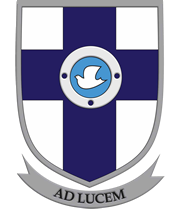
Policy
Bullying
Purpose of the policy
The purpose of this policy is to ensure that bullying is handled in an amicable and appropriate way by the people responsible for protecting individuals who are targets of bullying behaviour.
1. What is bullying?
Bullying is the violation of several rights.
It occurs when a child or group of children take advantage of the power they have to repeatedly and intentionally hurt, reject or adversely affect the rights of others.
2. Nature of bullying
Below are some examples. This is an attempt to list as many examples as possible, but it is not limited to the list included.
2.1 Physical: Pushing, scratching, shouldering, hitting, biting, pulling hair, kicking, unwanted touching, demanding money, etc.
2.2 Verbal: Name calling, teasing, mocking, swearing, negative comments, threats, making frightening phone calls, etc.
2.3 Psychological: Forcing children to do things they don’t want to do, intimidation, rolling the eyes, intimidating someone, etc.
2.4 Cyber bullying: Including social media, internet-based commentary including utterances, illustrations, graphics and scathing photos/videos.
3. Investigating and reporting of bullying
In all cases where bullying is suspected or an allegation is made, victims, learners, educators and other members of staff should report the information (incident) to the School Management Team.
3.1 The bully/bullies and the victim must be interviewed separately in order to hear their side of the story.
3.2 An investigation should take place and the incident must be recorded in the incident book.
3.3 The time and date of the incident and the parties involved must be noted.
3.4 Steps to rectify the situation must be set in place to prevent this type of incident from occurring again.
3.5 The person investigating the case should then contact the parents of the perpetrator as well as the victim’s parents and feedback should be given on the way it was dealt with.
3.6 The person who investigated the case should also inform the deputy principal of the phase and the principal about the incident and how it was handled.
3.7 If the person who investigated the case believes that it will be of help, he/she should report it to the relevant psychologist for further help.
3.8 As far as possible, proof of evidence must be obtained and saved.
4. Implement formative consequences
All learners who bully should be held accountable for their behaviour. This will send a clear message that bullying is not acceptable.
4.1 Certain privileges may be withdrawn from the bully, in line with the school’s disciplinary system.
4.2 The school’s psychologists can do counselling with the bully as well as the victim.
4.3 In extreme cases a life skills programme can be recommended (can take place in Life Orientation) that can provide the learners with the relevant life skills.
4.4 The Youth Care Worker and Social Worker may also be asked to conduct programmes that are relevant.
4.5 Peer groups can also be involved to reach certain objectives/role play.
4.6 In cases of repeated bullying behaviour and/or severe cases, a disciplinary hearing must be scheduled.
4.7 If the incident is of such a nature that may be in violation of The South African Constitution and Law, e.g. sexual manipulation or bodily harm, the police must be informed and a docket opened, so that the law can take its course.


